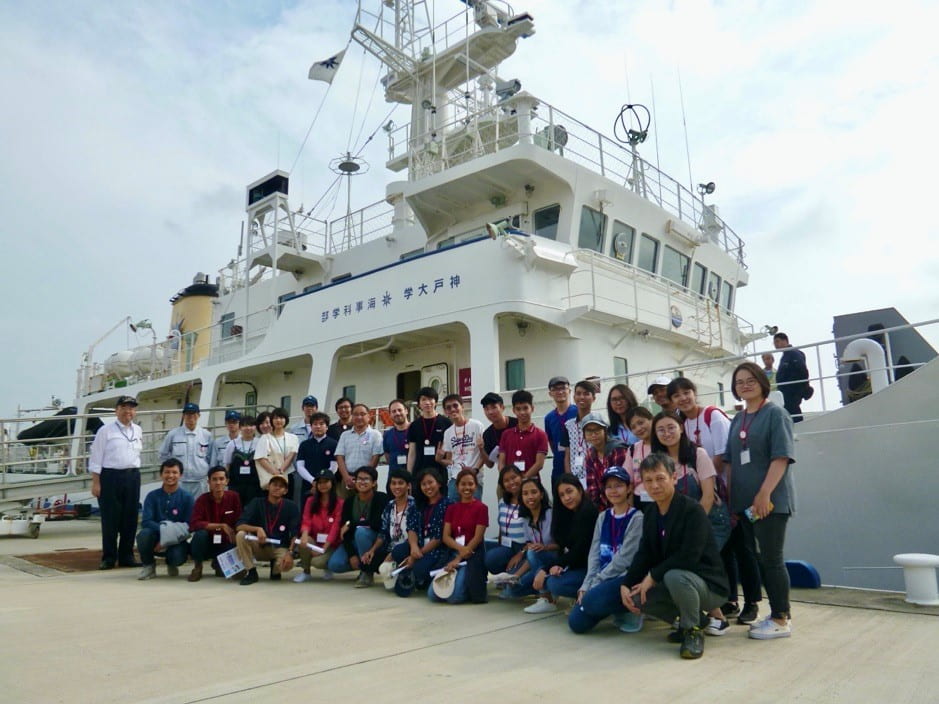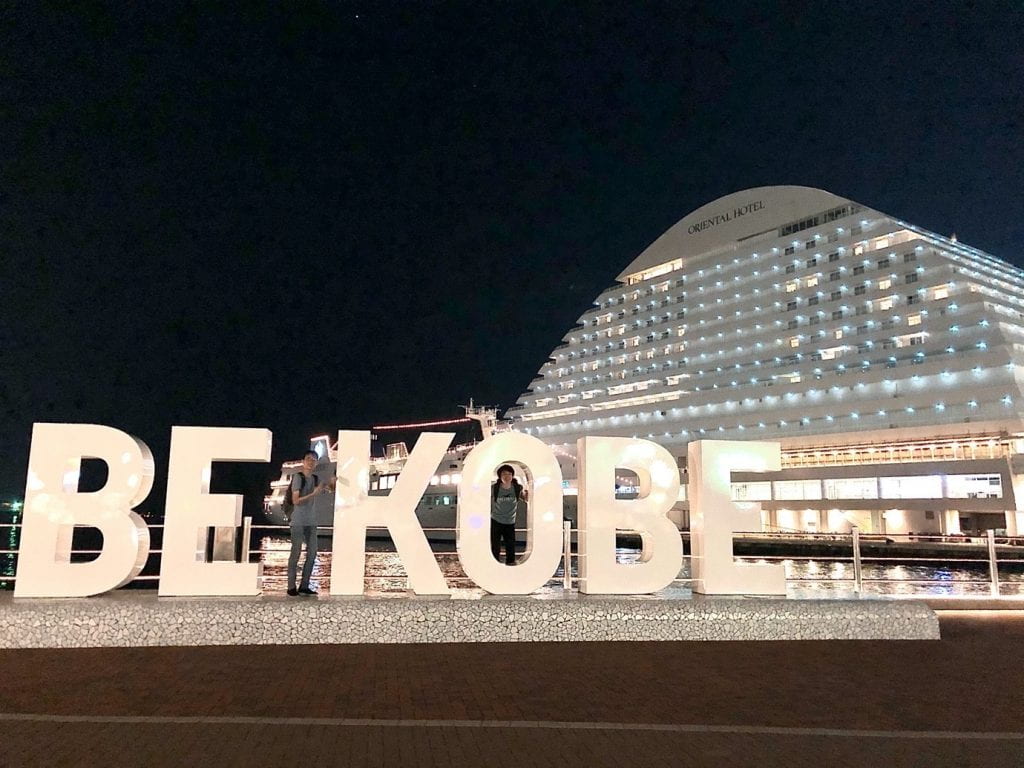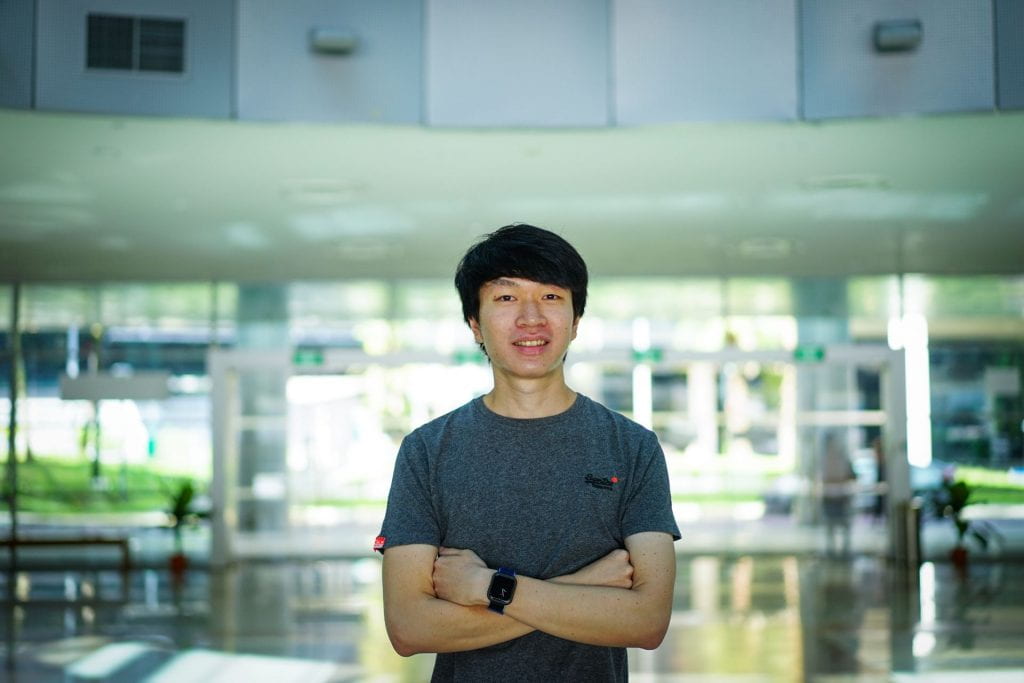EXPANDING HORIZONS BEYOND THE RED DOT (Part 3): Meet NTU School of Biological Sciences student Samuel Loo! Samuel took part in the one week summer programme in Kobe University, Japan in 2019. During the programme, he had the opportunity to experience research in Kobe University, sea training on the University’s training ship Fukaemaru, and even got his hands dirty with agricultural training! He recounts his exciting experience in Kobe, Japan!
Why did you choose to join the one-week Kobe University programme?
Having always had the intention to visit Japan, I felt that this programme offered the perfect opportunity to experience both the academic and cultural elements of Japan. Although my first application in 2018 was unsuccessful, I remained undeterred and individualised my motivations for wanting to join the programme and was selected during my second application.
Tell us about your experience in this programme.
This programme brought together undergraduate and graduate students from Thailand, Indonesia, Philippines, Malaysia, Taiwan, China, Bulgaria and Singapore. Despite coming from diverse cultures, it was heart-warming to witness the transformation from being strangers to friends over the course of the programme.

Participants (red lanyard), faculty members and staff (blue and yellow lanyard), and local student helpers (green lanyard) involved in the programme.
During the day, we attended lessons from different academic disciplines such as Design and Architecture, Agriculture, Science, Engineering, and Maritime. We were also given tours around various facilities such as the Fukae-maru training ship, SPring-8/SACLA, and the university’s Food Resources Education and Research Centre where we learnt about the coveted Wagyu beef and experienced planting rice.

We got onboard the Fukae-maru training ship and set sail on a short cruise, which is used for practical training, conducting experiments, and research purposes.
We were given the freedom to explore around when the day’s activities have ended. Maximising our time, we visited the more popular areas such as the Meriken Park and Harbourland, as well as the Shinsaibashi-Suji shopping street. Overall, it was an incredibly fulfilling cross-cultural experience.

One of the top photo spots in Kobe is the ‘BE KOBE’ monument at Meriken Park, which was a phrase coined 20 years after the Great Hanshin-Awaji Earthquake to instil a sense of civic pride.
Which part of the trip made the most impact on you?
The visit to SPring-8, touted to be the world’s largest energy storage ring, was both an engineering and scientific marvel and left the biggest impression on me. The generation of strong X-rays using in-vacuum undulators was invented in this facility, benefiting various fields from medicine and biology, to archaeology and forensic science.
How did you benefit from this experience, and would you recommend other students to participate in this summer programme?
Throughout the programme, I was exposed to concepts from various disciplines outside of my primary field of study, some of which piqued my interest. I also learnt about various innovations, achievements, and challenges faced by Japan. Although the lessons were mainly focused in the context of Japan, I felt that it offered a different perspective and certainly expanded my general knowledge. After all, knowledge transcends borders.
I would definitely recommend students to participate in this summer programme as it is indeed a once-in-a-lifetime experience. The knowledge gained and friendships forged will surely be fondly remembered.
You’re currently reading Biological Sciences in SBS. How did you find yourself in this field?
I have always been fascinated with the complexities and intricacies of life and naturally gravitated towards Biology. Having previously studied Biotechnology in polytechnic, it solidified my resolve to pursue a further education in Biological Sciences.
What are your plans after graduation?
I intend to gain experience and sharpen my skills by working in the field of research before deciding whether to do a PhD.
Any words of advice to prospective students keen to pursue Science?
Have a genuine interest and appreciation in the subject. After all, Science is built on the discoveries made by others and we are “standing on the shoulders of giants”. Also, be inquisitive and be persistent. As Steve Jobs once said: “Stay hungry. Stay foolish”.
About the One Week Summer Programme in Kobe University
The programme offers the experience of the study and research in the area of Science, Technology, Agriculture, and Maritime of Kobe University and the advanced research institute nearby. This program invites about 25 undergraduate or graduate students from the universities with academic exchange agreement with Kobe University.
As well as lectures in English, the students will experience sea training on the University’s training ship Fukaemaru, participate in hands-on agricultural training at the Food Resources Education and Research Center, and visit the SPring-8 facilities and so on. On the final day of the week-long program, Dean of the Graduate School of Science will present each student with a certificate of completion. For more info, click here.




